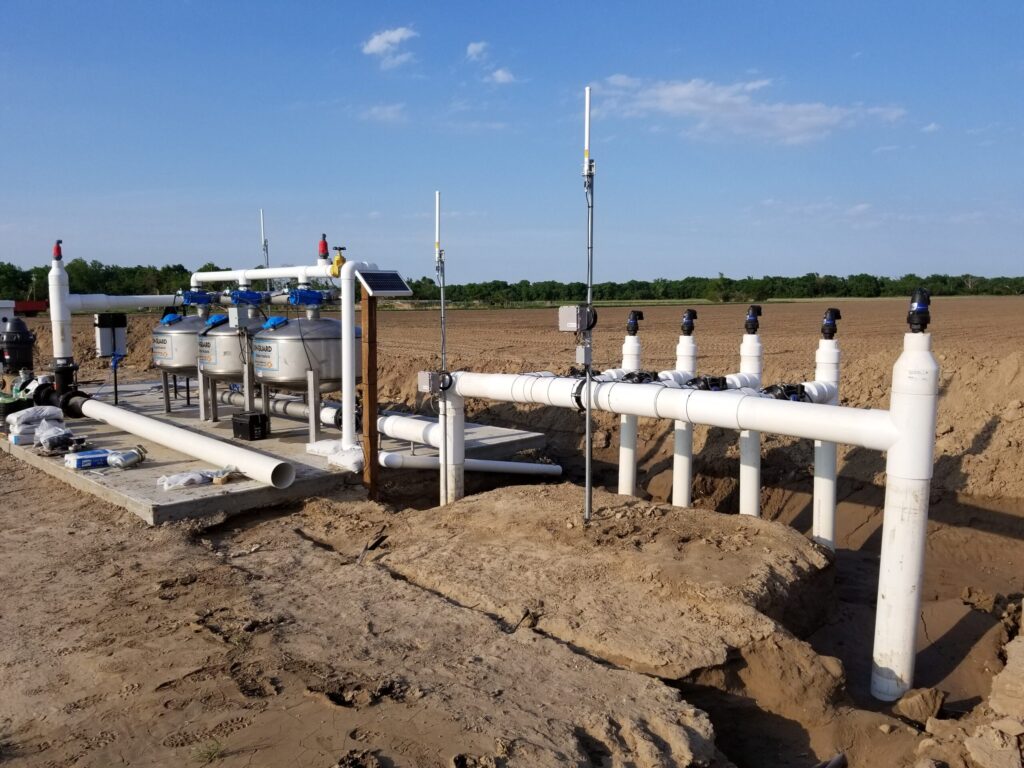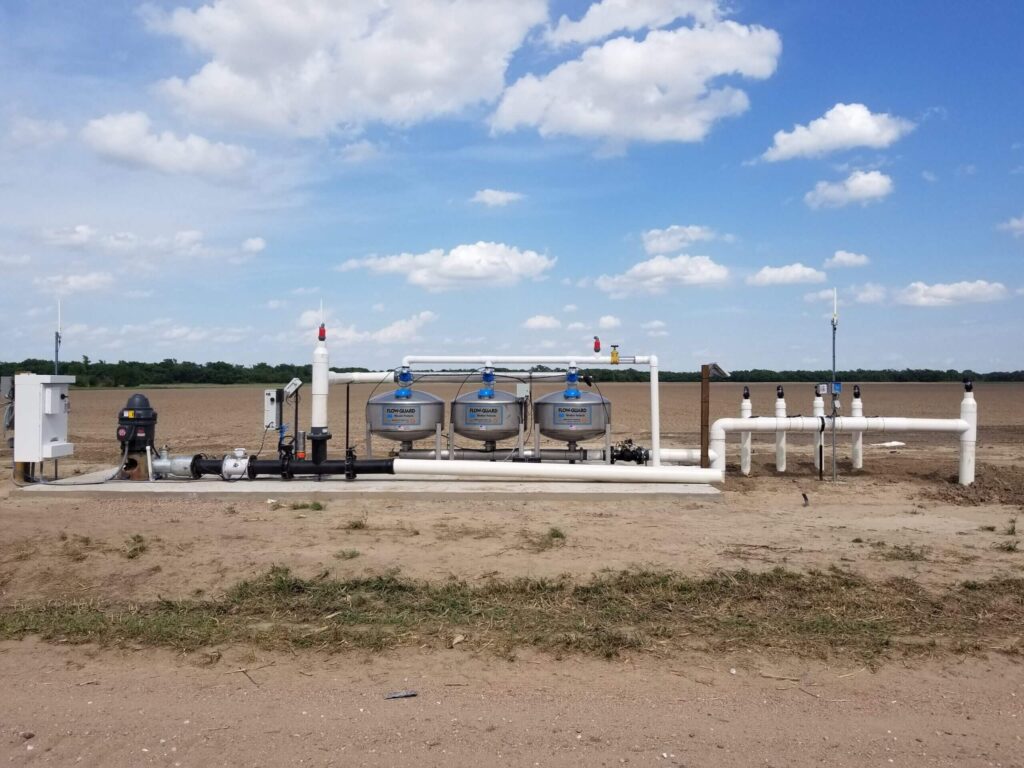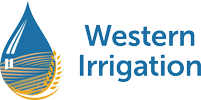Cultivating Success: The Secrets of Effective Corn Irrigation
In the sprawling tapestry of agriculture, where every field tells a story of growth, one crucial chapter is written beneath the emerald leaves of corn stalks. Join us as we embark on a journey into the heart of cultivation, exploring the secrets that transform ordinary cornfields into flourishing landscapes. This is not just about irrigation; it’s a tale of cultivating success through the art and science of effective corn irrigation. In the world of agriculture, water is not merely sustenance; it’s the elixir that nurtures and propels fields to abundant harvests. Get ready to delve into the secrets of effective corn irrigation, where every drop becomes a catalyst for growth, and every field holds the promise of a bountiful harvest.

Understanding Corn’s Water Needs
Corn is a staple crop that provides food and fuel for millions of people around the world. However, growing corn requires a significant amount of water, making it crucial to understand its water needs. Here’s why:
Corn is a thirsty plant, requiring at least an inch of water per week during the growing season. This need for consistent moisture can be challenging in arid regions or during droughts, as it can lead to stunted growth, reduced yields, and even crop failure. Studies have shown that corn yields can decrease by up to 25% for every week without rainfall during the critical pollination stage.
To mitigate these challenges, farmers are turning to irrigation technologies that can deliver water directly to the corn plants’ roots. This approach not only ensures consistent moisture but also allows for more precise application of water, reducing waste and conserving resources. Additionally, advances in breeding and genetics are leading to the development of drought-tolerant corn varieties that require less water and are better adapted to arid environments.=
In summary, understanding corn’s water needs is critical for ensuring a sustainable and productive corn crop. By implementing efficient irrigation practices and developing drought-tolerant varieties, farmers can minimize water waste and maximize yields, even in challenging environments. As demand for corn continues to grow, it’s essential to continue investing in research and innovation to help farmers adapt to changing climate conditions and meet the world’s increasing demand for this essential crop.
Why Mastering Corn Irrigation is A Game-Changer for Farmers and Their Overall Success
Mastering corn irrigation is a game-changer for farmers and their overall success for several reasons. Firstly, corn is a thirsty crop that requires consistent moisture to thrive, making irrigation a critical component of successful corn farming. Without adequate water, corn yields can decrease significantly, leading to financial losses for farmers.
Secondly, efficient irrigation practices can help farmers conserve water resources, which is becoming increasingly important in areas experiencing droughts or water scarcity. By applying water directly to the corn plants’ roots, farmers can minimize water waste and ensure that the crop receives the necessary moisture without overwatering or underwatering. This not only reduces water usage but also helps to prevent soil erosion and nutrient runoff, which can have negative environmental impacts.
Thirdly, mastering corn irrigation can lead to higher yields and better quality corn. Consistent moisture during the critical pollination stage is essential for optimal corn development, and irrigation can help to ensure that the crop receives the necessary water during this crucial time. Additionally, efficient irrigation practices can help to prevent stress on the corn plants, which can lead to reduced yields and lower quality crops.
In summary, mastering corn irrigation is a game-changer for farmers and their overall success because it allows them to conserve water resources, increase yields, and improve crop quality. As demand for corn continues to grow, it’s essential for farmers to adopt efficient irrigation practices that are sustainable and environmentally responsible. By doing so, they can maximize their profits while minimizing their impact on the environment.

Innovative Techniques for Precision Irrigation
As technology continues to advance, so do the tools available for precision irrigation. These innovative techniques allow farmers to apply water with pinpoint accuracy, ensuring that every drop counts and minimizing waste. Here’s a brief overview of some of the most cutting-edge precision irrigation techniques being used in corn farming:
- Drip Irrigation: This method involves delivering small amounts of water directly to the base of each plant through a series of tubes or emitters. It’s highly efficient and can reduce water usage by up to 60% compared to traditional flood irrigation.
- Sprinkler Irrigation: Sprinklers distribute water evenly over a field, mimicking natural rainfall. This method is best suited for flat or gently sloping fields and can reduce water usage by up to 30%.
- Center Pivot Irrigation: This technique uses long, rotating sprinkler arms to deliver water in a circular pattern, covering large areas of land efficiently. It’s ideal for larger cornfields and can reduce water usage by up to 25%.
- Variable Rate Irrigation (VRI): VRI systems use high-tech sensors and mapping technology to deliver varying amounts of water depending on the specific needs of each area of the field. This allows for precise application of water, reducing waste and optimizing plant growth.
- Soil Moisture Monitoring: By monitoring soil moisture levels, farmers can determine when and how much water to apply, ensuring that the crop receives the necessary moisture without over or under watering. This method can lead to significant water savings and improved yields.
In summary, these innovative techniques for precision irrigation are changing the game for corn farming. By implementing these practices, farmers can increase efficiency, reduce water usage, and improve crop yields, ultimately leading to greater success and sustainability in the industry.
Factors to Consider When Choosing the Most Suitable System for Corn Farming
When it comes to choosing the most suitable irrigation system for corn farming, there are several factors to consider. These include:
- Type of soil: The type of soil on a farm can affect the choice of irrigation system. Sandy soils may require more frequent watering, while clay soils may retain moisture longer.
- Topography: The shape and slope of the land also play a role in determining the most suitable irrigation system. Flat or gently sloping fields may be best suited for sprinkler irrigation, while center pivot systems are better for more irregular terrain.
- Water availability: The amount of available water on a farm will also impact the choice of irrigation system. If water resources are limited, farmers may need to choose a more efficient method such as drip irrigation or VRI.
- Climate: The climate and weather patterns in a specific region should also be considered when selecting an irrigation system. For example, areas with high winds may not be well-suited for sprinkler irrigation.
- Cost: Each irrigation system has its own costs associated with installation, maintenance, and operation. Farmers must consider their budget and the long-term costs when choosing the most suitable system.
By taking these factors into account and consulting with irrigation experts, farmers can make informed decisions on the best irrigation system for their specific corn farming needs. This will help to maximize yields, conserve water resources, and ultimately contribute to the overall success of their farm.

How to Create a Customized Irrigation Schedule Based on Crop Needs
Creating a customized irrigation schedule based on crop needs is essential for optimizing plant growth and minimizing water waste. Here are some steps to follow when developing an individualized irrigation plan for your corn crop:
- Determine soil moisture levels: Before deciding on an irrigation schedule, it’s crucial to know the current moisture level in the soil. This can be done through simple methods such as using a soil moisture probe or digging a small hole and inspecting the soil.
- Monitor weather patterns: Keep an eye on weather forecasts to anticipate rainfall and adjust irrigation schedules accordingly. This will help prevent overwatering and reduce water waste.
- Consider the crop growth stage: Different stages of corn growth require different amounts of water. For example, during pollination, corn needs more water, whereas during the grain filling stage, it requires less.
- Use soil moisture sensors: Soil moisture sensors can provide real-time data on soil moisture levels and help determine when to irrigate. This allows for precise irrigation decisions based on crop needs.
- Adjust irrigation schedules as needed: Be flexible with irrigation schedules and make adjustments as necessary based on weather patterns and crop growth.
By following these steps and regularly monitoring soil moisture levels, farmers can create a customized irrigation schedule that meets the specific needs of their corn crop.
Precision irrigation has revolutionized corn farming by providing farmers with advanced tools to optimize water usage and improve crop yields. By choosing the most suitable system for their specific farm, considering factors such as soil type and water availability, and creating a customized irrigation schedule based on crop needs, farmers can achieve greater success and sustainability in the industry. With continued advancements in technology, precision irrigation will continue to play a major role in the future of corn farming and agriculture as a whole. So let’s continue to embrace these innovative techniques and work towards a more efficient, sustainable, and prosperous future for our crops.
